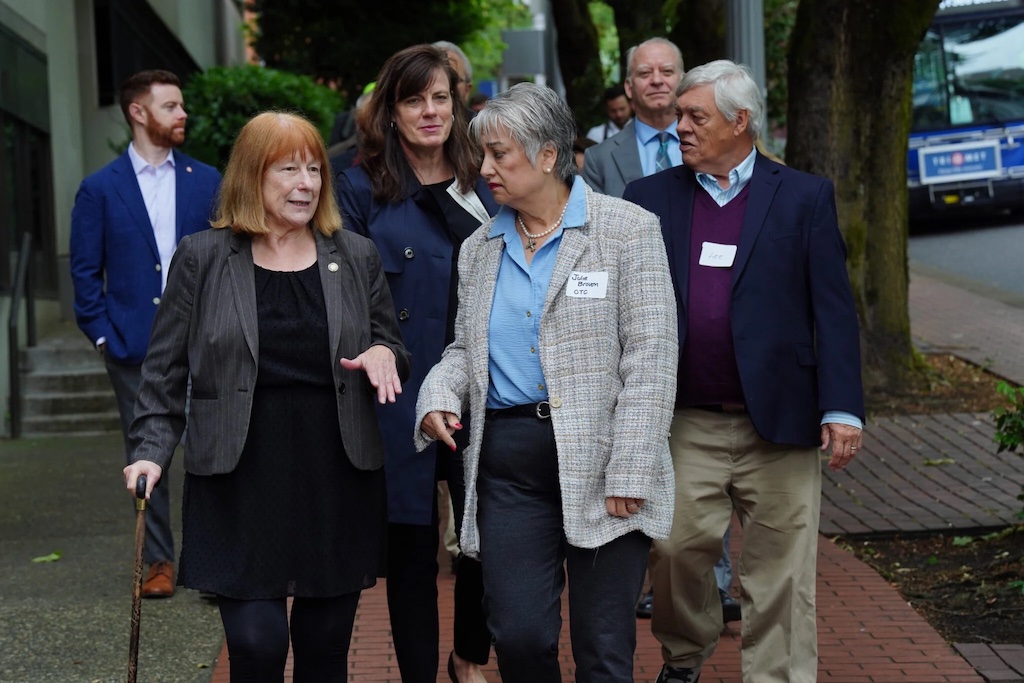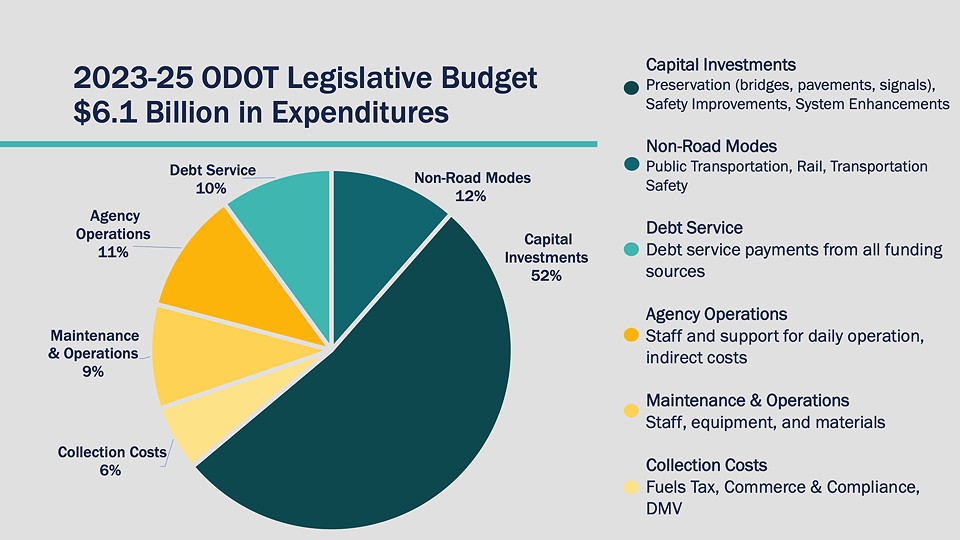Tell the Oregon Legislature your transportation priorities
On July 17, BEST urges you to comment to the Joint Committee on Transportation about who benefits, who pays, and who decides.

BEST urges you to comment to the Joint Committee on Transportation when they stop in Eugene:
Wednesday, July 17, 5:00–7:00 pm
Lane Events Center (796 West 13th Ave, Eugene)
Agenda
❗In-Person Testimony
Arrive by 4:30 pm to sign up. First come, first serve. Those arriving later might not get a chance to speak. Limit your comments to no more than 2 minutes.
✅ Written Testimony
By Friday, July 19, 5 pm, email comments to JCT.exhibits@oregonlegislature.gov. BEST urges you to submit your comments in writing, even if you have a chance to speak.
General Tips
- Address comments to “Co-Chairs McLain and Gorsek, and members of the Committee.”
- Introduce yourself briefly: name, residence, and whether you are speaking as an individual or on behalf of an organization.
- Legislators think with their heads but vote with their hearts. A memorable personal story is worth a thousand statistics or policy points.
Suggested talking points
BEST recommends organizing your comments to answer some or all of three fundamental questions.
Who benefits?
Everyone should benefit: In particular, we need safe and practical transportation options for the more than one-quarter of Oregonians who do not drive regularly, whether due to age, ability, income, or legal status.
Safety: The economic cost of the 606 deaths in 2022 was $7.5 billion: more than double the state transportation budget. Deaths of people walking are rising sharply: from 98 deaths in 2021 to 132 in 2022. We need to prioritize safety over speed. Protect the lives of the most vulnerable road users by investing in Safe Routes to School, Great Streets, and All Roads Transportation Safety, and by implementing the Transportation Safety Action Plan.
Walking, Biking, and Micromobility: Support safe multiuse paths and cost-effective innovative mobility options such as bike share.
Transit: Improve intracity and intercity service by increasing the State Transportation Improvement Fund.
Roads and Bridges: We need to operate and maintain the current system.
Who pays?
Fair: Those who can should pay for the costs they impose.
Wear and Tear: All motor vehicle drivers should pay for operations and maintenance, whether via existing taxes and fees or a new mileage fee.
Traffic: Widening a road doesn’t always reduce congestion. Regardless, the cost should be shouldered by those using the added lanes, for example, via tolls or congestion pricing.
Pollution: Those walking, biking, riding the bus, or driving greener vehicles should pay less or receive incentives to encourage their lesser impacts.
Transportation-Efficient Land Uses: “When you find yourself in a hole, stop digging deeper.” Oregon can save money by planning for people to live, work, study, shop, and play closer to efficient transportation options, reducing the number and length of motor vehicle trips, hence the need for expensive roads.
Equity: But we must ensure that those least able to pay are able are able to afford to get around.
Who decides?
Trusted Oversight: “Whoever has the gold makes the rules.” To pay more, Oregonians need to have confidence in those deciding how to spend it. They should reflect the diversity of Oregonians and act independently on our behalf.
Transparency: We need to clearly see where our money is going, for example, with a comprehensive online dashboard showing all major expenditures.
Accountability: We need to commit to fixing first what we have. Ultimately, transportation is a means to an end. We need to see not merely projects and programs but what positive outcomes they make in daily lives and across our communities.
“Show me the money”

Lawmakers are looking for Oregonians to pony up an extra $1.8 billion a year to fill a growing funding gap to maintain the current transportation system—plus a couple billion more to finish paying for megaprojects they promised seven years ago. Meanwhile, heavy vehicle operators are floating a 30-cent gas tax increase on light vehicles, believing they have been paying more than their fair share.
See also
- BEST argues for increasing investments in transportation safety statewide (BEST, 6/27/24)
- Legislature hits the road to hear about transportation needs (BEST, 5/23/24)
- Oregon says it will soon run out of money for transportation (BEST, 5/2/24)